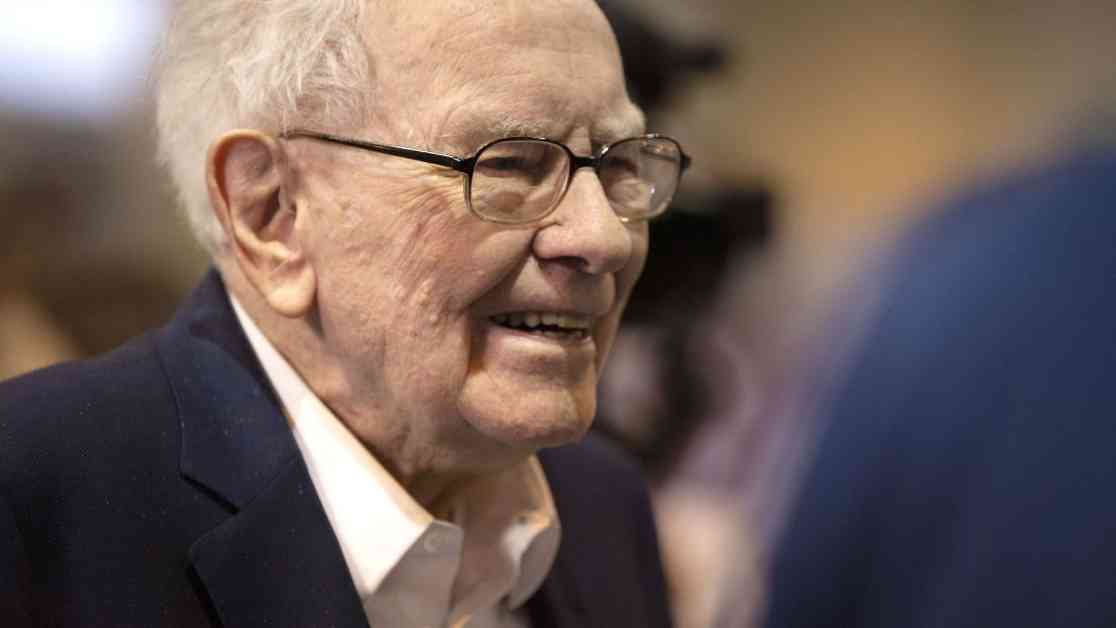Warren Buffett’s Strategic Investment Shift: A Closer Look
Warren Buffett, the renowned 94-year-old CEO of Berkshire Hathaway, made headlines recently for a surprising move: increasing his cash holdings and selling off stocks. The Oracle of Omaha, as he’s affectionately known, gathered with Berkshire Hathaway shareholders in Omaha, Nebraska, on May 3rd, 2024, sparking curiosity and speculation.
Despite Buffett’s reputation for his shrewd equity investments over the years, the mystery deepened as he chose to sell more stocks and amass a staggering $334 billion in cash, a record high for the company. The annual letter released by Buffett failed to provide a clear explanation for this defensive stance, leaving investors and analysts puzzled.
In the midst of growing questions regarding his investment strategy, Buffett emphasized that his fondness for equities remained steadfast. While acknowledging the significant cash position at Berkshire, he reassured shareholders that the majority of their funds would continue to be invested in stocks. This declaration aimed to dispel concerns that Berkshire was moving away from its core investment philosophy.
The decision to hold a substantial cash reserve has raised eyebrows, particularly as interest rates are projected to decline. Buffett’s reluctance to deploy capital in a booming market, marked by soaring stock prices and economic uncertainties, has left many wondering about his next move. Despite selling off stocks for nine consecutive quarters and reducing stakes in major holdings like Apple and Bank of America, Berkshire Hathaway stands firm in its commitment to equity investments.
Buffett’s cautious approach amidst a bull market that has seen impressive gains underscores his prudent investment style. With the S&P 500 surging and economic indicators fluctuating, Buffett’s conservative stance reflects a calculated strategy to weather potential market volatility. His reluctance to engage in buybacks or significant stock purchases suggests a deliberate pause to assess market conditions and identify compelling opportunities.
While Buffett’s actions may seem enigmatic to some, his trust in Greg Abel, Berkshire Hathaway’s designated successor, offers a glimpse into the company’s future direction. Abel’s role in overseeing investment decisions and navigating equity opportunities underscores Buffett’s confidence in his leadership. This strategic succession plan hints at a seamless transition and a long-term vision for Berkshire Hathaway’s investment portfolio.
As Buffett navigates the complex landscape of modern investing, his deliberate approach and emphasis on long-term value creation remain unwavering. With an eye on the horizon and a commitment to prudent financial stewardship, Berkshire Hathaway continues to uphold its legacy as a beacon of stability and integrity in the financial world.
In conclusion, Warren Buffett’s recent shift in investment strategy reflects a broader vision for Berkshire Hathaway’s future and a commitment to enduring value creation. As the Oracle of Omaha charts a course through uncertain economic waters, his strategic decisions offer insight into the timeless principles of sound investing and prudent risk management. With Greg Abel poised to lead the company into a new era, Berkshire Hathaway’s legacy of excellence and integrity shines brightly in an ever-evolving market landscape.

























